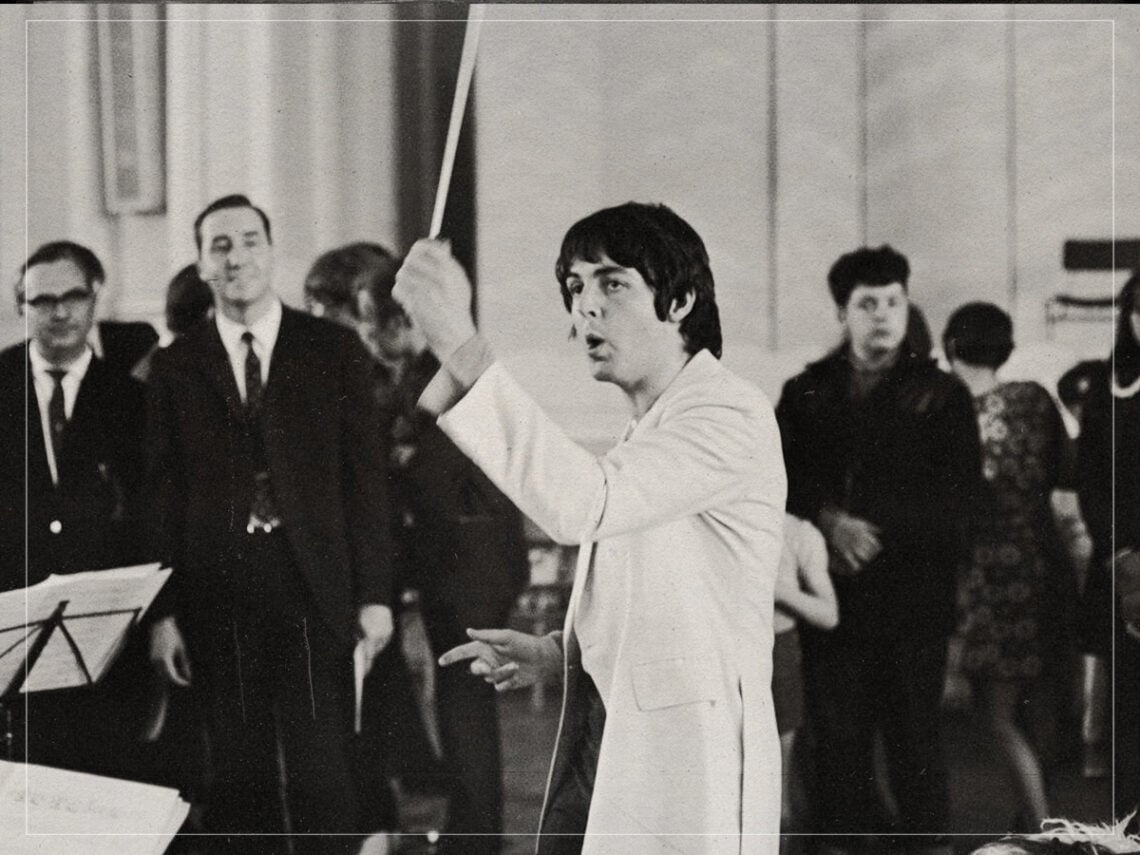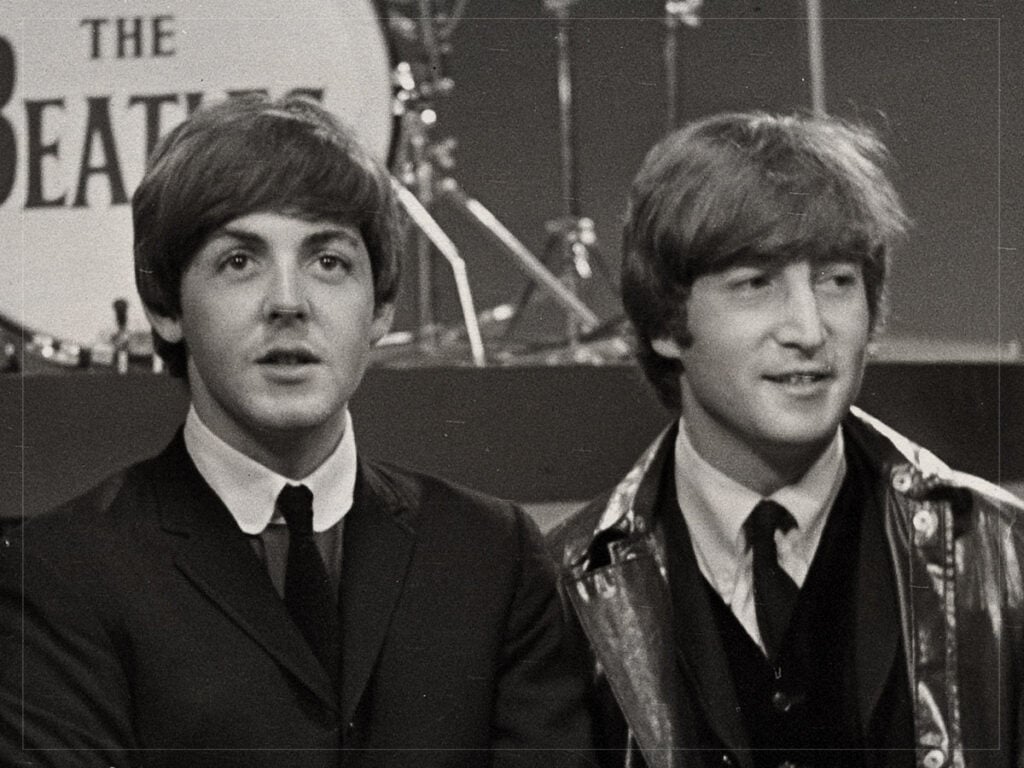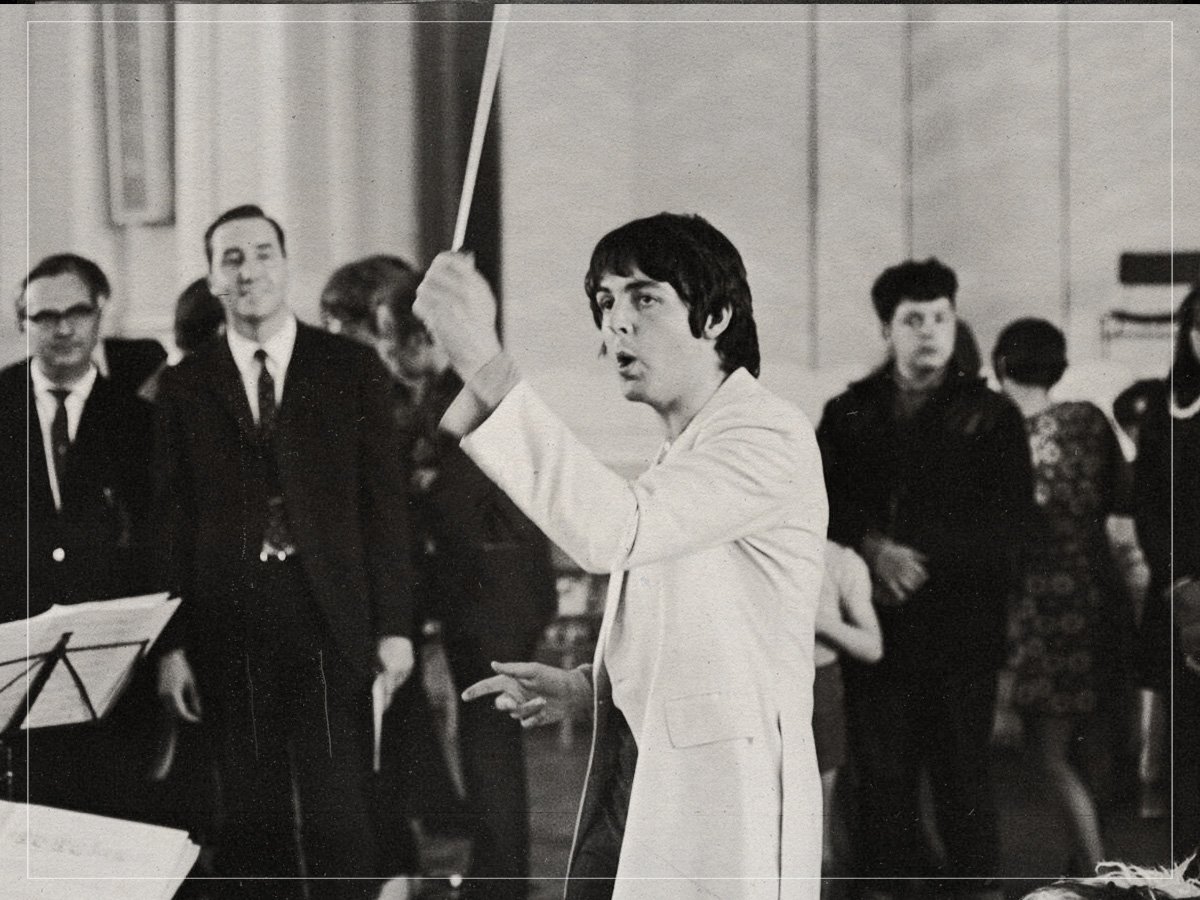
(Credits: Far Out / Alamy)
Tue 28 October 2025 17:30, UK
Among the large contingent of Beatles fans who identify themselves as “John people”, the explanation for their allegiance often includes a mention of the “raw” and “experimental” nature of many of John Lennon’s contributions to the band, in comparison to the supposedly more traditional pop offerings coming from Paul McCartney.
This makes it somewhat ironic that Lennon, himself, seemed to see part of that distinction in tone as a flaw rather than a feature; a consequence of McCartney conspiring against him in the studio.
“Subconscious sabotage,” Lennon told Playboy magazine in 1980, in what would prove to be one of his final interviews. “Usually we’d spend hours doing little detailed cleaning-ups of Paul’s songs; when it came to mine, especially if it was a great song like ‘Strawberry Fields’ or ‘Across the Universe,’ somehow this atmosphere of looseness and casualness and experimentation would creep in,” he added.
“[Paul] will deny it,” Lennon continued, “‘cause he’s got a bland face and he’ll say the sabotage doesn’t exist. But this is the kind of thing I’m talking about, where I was always seeing what was going on.”
It’s a bit sad to see that Lennon, even at the age of 40 and presumably at a point where he might have gained a healthier perspective on the Beatles era and the inevitable and immature feuds that emerged from it, was still hung up on his perceived rivalry with his former childhood pal. As John saw it, some of his own best songs got their appealingly strange or raw sound not by design, but due to Paul’s evil schemes to undercut them, which, in a way, would almost make Paul McCartney the true maestro of the John Lennon sound; an idea that certainly would have made the latter seethe even more.
But is there any actual validity to Lennon’s accusations in the first place? Even as their youthful egos continued to grow beyond the confines of Abbey Road’s walls in the late 1960s, is it plausible that McCartney would stoop so low as to intentionally undermine his songwriting partner and potentially diminish the quality of a Beatles album along the way?
 Paul McCartney and John Lennon with The Beatles in 1964. (Credits: Far Out / Eric Koch for Anefo)
Paul McCartney and John Lennon with The Beatles in 1964. (Credits: Far Out / Eric Koch for Anefo)
The answer is probably best answered with two qualifiers. Would he have done it consciously and intentionally? Certainly not. But subconsciously, as Lennon suggested? I guess it’s at least a possibility.
One of the ingredients of the Beatles’ unparalleled success and remarkably swift evolution from one record to the next was the push and pull between the band’s two central songwriters. Neither Lennon nor McCartney could ever become complacent or rest on their laurels, because even if the outside world hailed them both as geniuses, they still needed to keep up with each other.
That challenge, of course, would be a lot easier if your partner’s songs were a bit shittier than your own, and this was certainly the thought that occurred to John, and which he was more than happy to project onto Paul.
What debunks Lennon’s conspiracy theory a bit, however, is the presence of a few other important people in the room: namely, Ringo Starr, George Harrison, and a fellow named George Martin. These men were the guardrails preventing the Lennon-McCartney hit-making train from completely flying off the tracks or collapsing under the weight of its own self-admiration and one-upmanship. This trio might not have been able to control the direction of a recording session quite the way Paul could, as evidenced by the footage in the Get Back documentary, but they certainly weren’t going to sit idly by and let a good song get sabotaged in broad daylight.
In his own defence, McCartney was quick to point out that Lennon was consistently a paranoid individual who “was always thinking I was cunning and devious,” as he told Beatles biographer Hunter Davies, noting that John had also suspected him of conspiring against him when it came to investing in the band’s publishing company, Northern Songs Ltd, “John went mad, suspecting some plot. Then he bought some [shares].”
There’s nothing more disappointing to see from a talented, successful, and beloved individual than a streak of unrelenting bitterness. Unfortunately, for much of John Lennon’s life, this remained his Achilles’ heel.
Related Topics
The Far Out Beatles Newsletter
All the latest stories about The Beatles from the independent voice of culture.
Straight to your inbox.

